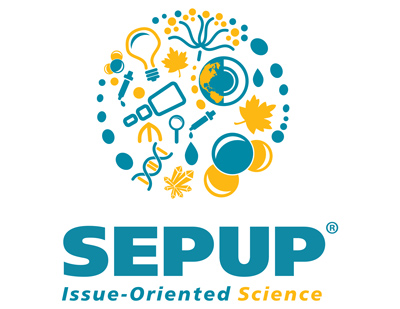Author: juliethierman
Issues and Science for California, Grade 6
Land, Water, and Human Interactions Nathanael WalesWales is a civil engineer with the U.S. Army Corps of Engineers. He plans projects to protect the shoreline from flooding and erosion, and to protect stream banks from erosion and collapse. Rafael L. BrasBras is a civil engineer who studies rainfall and water runoff to predict flooding of […]
Science as a Human Endeavor
Science and engineering are human activities. People from all over the world engage in science and engineering and use scientific information and technological solutions. The types of questions a scientist asks and the types of problems an engineer tries to solve are influenced by what they think is important. And what they think is important […]
NGSS Pathways
Each Performance Expectation comes at the end of a Learning Pathway, a sequence of activities that includes appropriate disciplinary core ideas, science and engineering practices, and crosscutting concepts. The pathway also integrates Common Core State Standards in ELA and Math. Each instructional unit bundles numerous Performance Expectations therefore an activity may be part of several […]
EdReports Review of Issues and Science: Third Edition
EdReports, an independent non-profit organization that reviews instructional materials, has published its review of SEPUP’s Issues and Science middle school science program. We are happy to announce that the program received the second-highest NGSS alignment rating of all programs reviewed to date. Issues and Science was given an overall rating of “Partially Meets Expectations,” with […]
Middle School NGSS Assessment Project
SEPUP (Science Education for Public Understanding Program) at the Lawrence Hall of Science is leading a research and development project. In this project, curriculum and assessment developers from the Lawrence Hall of Science are developing assessments to monitor students’ progress towards understanding of the Next Generation Science Standards (NGSS). These assessments are intended for teachers […]
Example of High Quality NGSS Design if Improved: Disruptions in Ecosystems
Disruptions in Ecosystems is a middle school unit developed by the Lawrence Hall of Science’s SEPUP as part of a collaborative project funded by the National Science Foundation to develop and evaluate a model instructional unit and professional development program and conduct research on teacher learning. The unit was designed for the middle school NGSS. […]
SEPUP workshop materials available for download
Ecological Society of America Annual Meeting 2023 August 6-10, 2023Portland, OR “Middle and High School Ecology Curricula: Preparing Students for 4D Ecological Learning.”Poster NSTA 2023 March 22-25, 2023Atlanta, GA “NGSS-Aligned Summative Classroom Assessments of Three-Dimensional Learning”Presentation Slides “Computational Thinking Using Computer Simulations in High School Biology”Presentation SlidesStudent and Teacher Pages “Using “Science as a Human […]
Revision of Middle School Science Courses
SEPUP has revised all three middle school science curricula: Issues and Earth Science, Issues and Life Science, and Issues and Physical Science. The second edition of these courses have been revised to include updated data and information regarding recent events. Specific changes for each course include: Issues and Earth Science Updated data from NASA’s Kepler Mission Activity 32, […]
Congratulations to Donna Markey
Donna Markey, a science teacher at Vista Magnet Middle School in Vista, California, is one of two middle level recipients of the 2012 PASCO STEM Educator Award, sponsored by PASCO scientific that honors K–12 STEM educators who implement innovative, inquiry-based, technology-infused STEM programs. Donna has been a long time user, contributor, and developer of many […]
New Hydrogen & Fuel Cells Module Available
The Hydrogen Technology and Energy Curriculum (HyTEC) project has developed and field-tested a high school chemistry module titled, Investigating Alternative Energy: Hydrogen & Fuel Cells. This module is currently available and was developed by SEPUP in collaboration with the Schatz Energy Research Center (SERC) at Humboldt State University, and is published by Lab-Aids. The new curriculum […]

